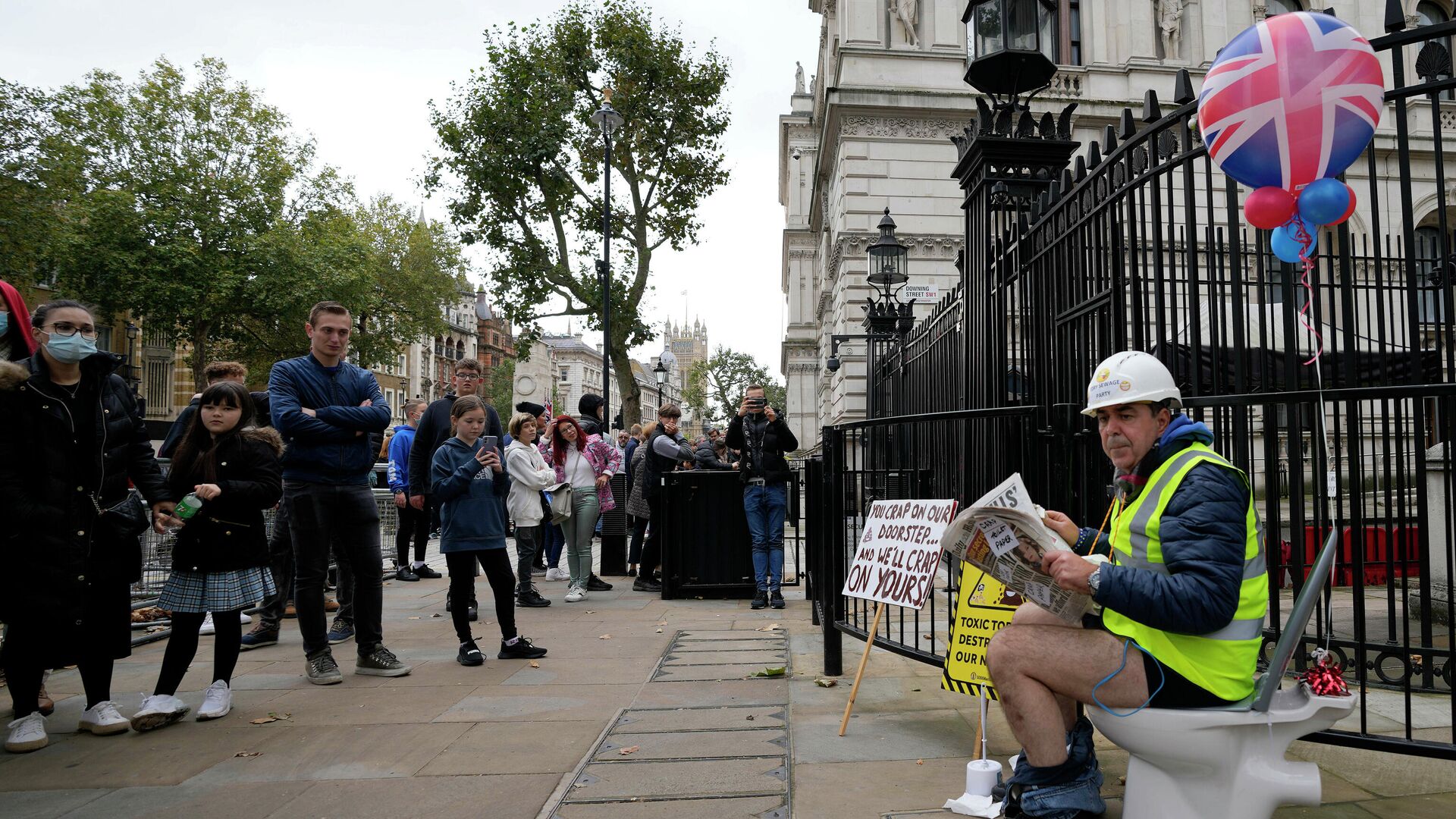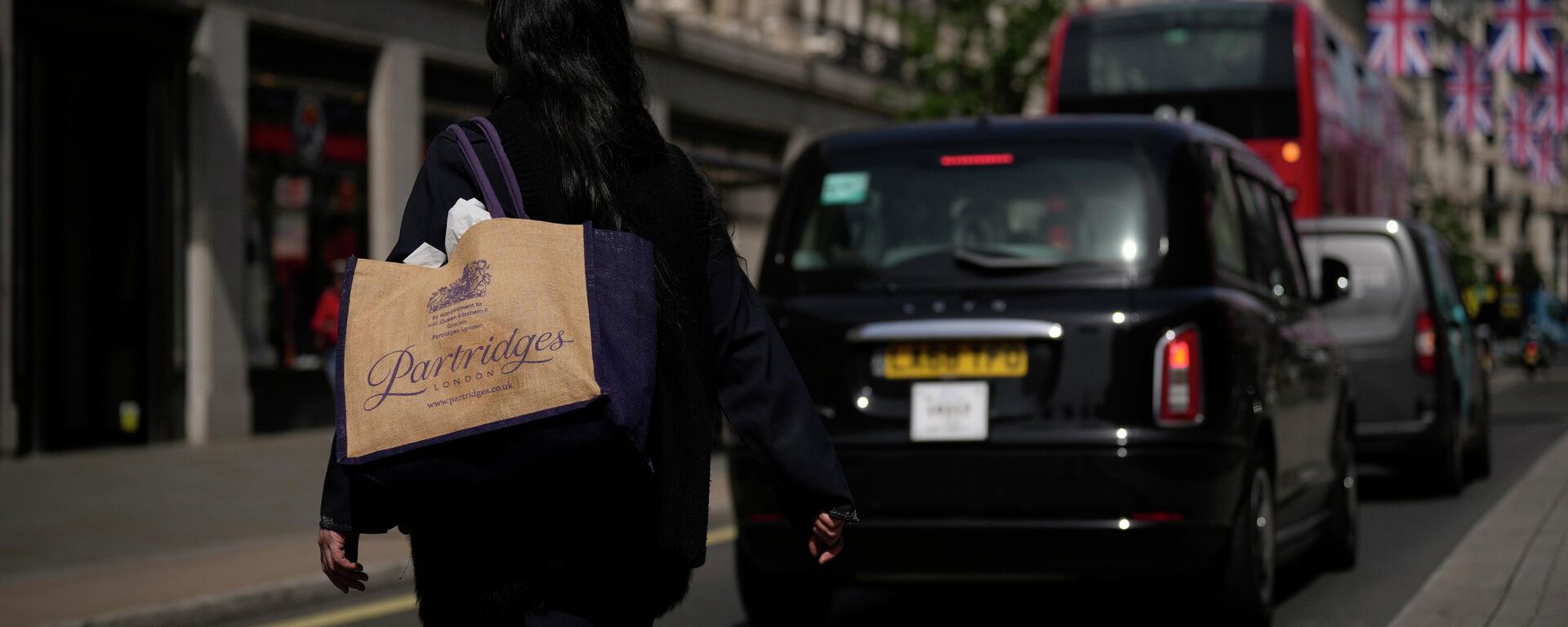UK's Boost of Police Powers Against Eco Activists May Backfire With More Protest: Experts
08:21 GMT 19.10.2022 (Updated: 15:24 GMT 28.05.2023)

© AP Photo / Frank Augstein
Subscribe
MOSCOW (Sputnik) - Plans by UK Secretary of State for the Home Department Suella Braverman to extend the powers of the police when it comes to dealing with environmental protesters are not aimed at protecting the public and may be perceived as inaction on the issue of climate change, thus sparking even more activism, experts told Sputnik.
The secretary is reported to want to submit a Public Order bill that expands police powers as well as more serious penalties for protesters if the protests threaten or cause "serious disruption or a serious adverse impact on public safety." The initiative comes in the wake of eco-activists from the UK climate campaign group Just Stop Oil splashing tomato soup over Van Gogh's Sunflowers painting at the National Gallery in London to demand that the government halt new oil and gas extraction projects.
This is not the first time the UK authorities have targeted people involved in climate activism. In 2020, the counter-terrorism police issued a guide to extremist ideologies which included the environmental group Extinction Rebellion. The police later recalled the guidance.
"An unsurprising response, unfortunately. We've seen similar responses by government officials to the disruptive tactics deployed by Extinction Rebellion and Insulate Britain, to name a few examples. In short, such draconian measures against environmental activists are intended not to protect the public, as these groups do not pose a threat to public safety, but to protect state and corporate interests," Heather Alberro, a lecturer in global sustainable development at Nottingham Trent University, said.
She noted that direct-action tactics are used to draw immediate attention when the usual methods such as voting and lobbying are not working quickly enough, saying that "minor inconveniences" from such tactics are nothing compared to the widespread deaths that will occur if the climate crisis is not addressed.
"To paraphrase human ecologist Andreas Malm, the audacious criminality of the fossil economy only makes emergency tactics like blockading roads and dismantling fossil fuel infrastructure all the more urgent," Alberro continued, adding that "the UK government's response to activists merely trying to highlight the urgency of our predicament represents yet another dangerous step in the wrong direction."
Her sentiment is echoed by John Barry, a professor of green political economy at Queen's University Belfast, who stated that "if people are more outraged by this act [the Sunflowers incident], than the consistent and deliberate failures over decades by states such as the UK to ensure, in the words of one of the latest reports of the Intergovernmental Panel on Climate Change, ‘a brief and rapidly closing window of opportunity to secure a liveable and sustainable future for all', then I respectfully would say they have completely the wrong priorities of what is important."
Barry went on to warn that, without effective climate action by the government, some activists may resort to attacks against infrastructure, while also citing Malm, who authored a book called How to Blow Up a Pipeline: Learning to Fight in a World on Fire that was published in 2021. At the same time, Barry is convinced that climate activists will target only infrastructure and not people.
A similar opinion was given by Christopher Rootes, emeritus professor of environmental politics and political sociology at the University of Kent, who said that "overt violence is very unlikely as it would be wholly contradictory to the ethics that guide their actions."
Alberro shares that view, explaining to Sputnik that direct action by climate activists has the goal of hindering "extractive enterprises" and is "in no way aimed towards harming life or instilling fear," thus lacking the necessary criteria to be considered a terrorist or extremist act.
"Desperation can indeed lead to increasingly extreme measures. However, the ethical and political orientations of these groups is such that overt violence towards living beings is inherently incompatible with their objectives. This is what categorically differentiates them from far-right movements, for instance," she concluded.




